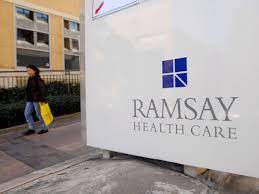On Wednesday, a group led by KKR & Co made an unsolicited near-$15 billion bid for Ramsay Health Care Ltd, highlighting buyout firms’ interest in healthcare assets and driving the Australian company’s stock up by as much as 30%.
According to Refinitiv data, if the takeover is successful, it will be the largest private equity-backed buyout of an Australian company and the largest deal in Australia this year, nearly doubling activity.
Ramsay said in a statement that it will give non-exclusive due diligence to the KKR-led group and that conversations were still in the early stages.
The deal would provide a significant return for the Paul Ramsay Foundation (PRF), Ramsay’s largest stakeholder with an 18.8 percent interest, which has stated its support for the bid.
“Ramsay Health Care’s board of directors will evaluate any conditional indicative offer. However, if an offer along the lines outlined in Ramsay Health Care’s ASX Announcement materializes, PRF would support putting such an offer to shareholders “.
According to a person with firsthand knowledge of the situation, the consortium includes HESTA, an Australian pension fund, and Abu Dhabi Investment Authority, a sovereign fund. Because the firms’ involvement was not public, the person declined to be identified.
HESTA did not react to a request for comment, and the Abu Dhabi fund did not respond to a request for comment.
The non-binding proposal comes as low-interest rates encourage cash-rich private equity firms, superannuation funds, and pension funds to invest in healthcare and infrastructure projects.
The A$88 cash per share offer, representing a total of A$20.05 billion ($14.8 billion), offers a nearly 37% premium over Ramsay’s Tuesday closing price of A$64.40. According to sources, the deal’s total worth is A$28 billion.
The offer propelled the shares up as much as 30% to A$83.55, their highest intraday level in over six years and their greatest intraday gain to date, before trimming gains to settle at A$80, up 24 percent.
“The 31.3 percent premium over Ramsay’s price over the last six months is reasonable for a change of control,” said Brian Freitas, a Smartkarma analyst.
“With a forward earnings multiple of 33 times versus an average of 17 times for its peers, stockholders should be alright.”
Ramsay has discussed the proposal with its advisers and has requested details from the consortium about the deal’s funding and structure.
A request for comment from KKR was not returned.
According to Refinitiv statistics, the overall deal value in Australia so far this year is $17.4 billion, down 41% from a year ago in the first quarter. In the past year, the country has seen a flurry of spectacular takeovers, including the purchase of Sydney Airport and Block Inc’s acquisition of buy-now-pay-later king Afterpay.
Ramsay’s earnings have been impacted by the COVID-19 epidemic, which has resulted in the closure of non-urgent procedures, staffing shortages due to isolation restrictions, and increasing pay pressure.
CSL Ltd, an Australian biopharmaceutical company, made an $11.7 billion offer for Swiss manufacturer Vifor Pharma AG last year.
Ramsay has a network of more than 530 hospitals and clinics spread across ten countries on three continents. It offers clinics and primary care units in roughly 350 locations across six European nations and has 72 private hospitals and day surgery units in Australia.
The Paul Ramsay Foundation, which was founded by Paul Ramsay in 1964 to convert a Sydney guest house into one of the country’s first psychiatric hospitals, sold approximately 11 percent of Ramsay in 2019 for A$61.80 per share.
Elsan, a French healthcare company, is owned by KKR.
Ramsay said it was continuing to explore a $1.35 billion takeover bid for its Asia joint venture with Malaysia’s Sime Darby Holdings from IHH Healthcare Bhd.
For the KKR-led consortium’s bid, Ramsay has retained UBS and Herbert Smith Freehills as financial and legal advisers, respectively. Barrenjoey Capital and Credit Suisse are advising KKR, according to sources.

















